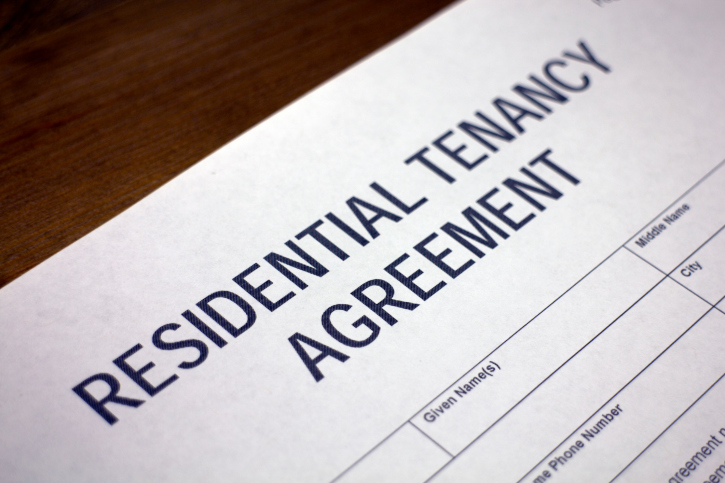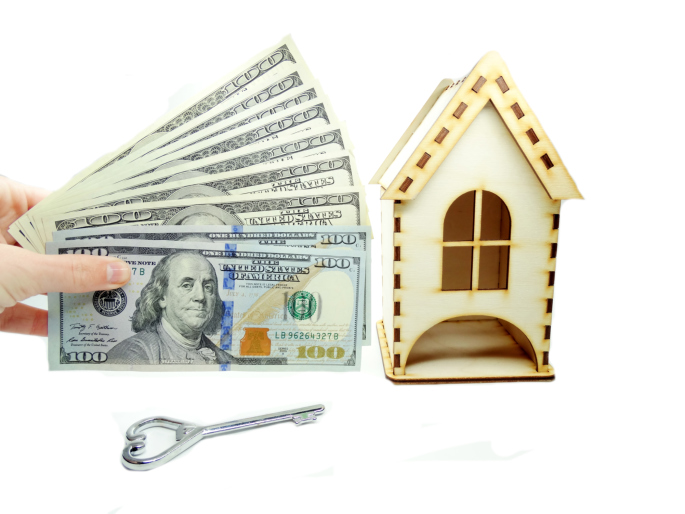 Are you thinking about selling a home that you have rented out for some additional revenue? If so, you’re likely trying to discern how to best inform the current tenants and conduct the sales process in a way that works well for all of the parties involved. In today’s blog post we’ll explore how to sell your home while you’re renting it out to tenants and share three tips that can make the process a bit easier.
Are you thinking about selling a home that you have rented out for some additional revenue? If so, you’re likely trying to discern how to best inform the current tenants and conduct the sales process in a way that works well for all of the parties involved. In today’s blog post we’ll explore how to sell your home while you’re renting it out to tenants and share three tips that can make the process a bit easier.
#1: Review Local Laws and Your Tenancy Agreement
First, you’ll want to break out your tenancy agreement and download any state, provincial or municipal laws that apply to landlord-tenant relations. Selling a home with renters living in it can result in a number of sticky situations. You’ll want to ensure that you conduct yourself in accordance with the rule of law as you may end up in court if the process goes sour.
#2: Communication is a Vital Part of the Process
Next, you’ll need to ensure that you’re communicating with your tenants every step of the way. Meet with them to let them know that you would like to place the home on the market, and explain how the sales process is going to work. Allow your tenants to ask questions and to state their case as they may be willing to buy the home from you if they can afford it, or if the price is right. Be polite but firm; you don’t want to encourage any hostility but this is your property and ultimately, your decision.
Don’t forget to fully inform your tenants as to how home showings will work, as they’ll likely be concerned as to who is being provided with keys to their home.
#3: Incentives Can Sway an Unruly Tenant
Finally, if you’re faced with some unruly tenants that are making the sales process challenging you may find that financial incentives make them back off a bit. You’ll need their cooperation in keeping the home relatively clean and tidy, so you may want to consider offering some gift certificates or paying a portion of the rent in exchange for their help. If you’re hosting an open house over a weekend, offer to put their family up in a nice hotel somewhere in town where they can enjoy a weekend together.
While selling a home with tenants living inside is rarely easy or fun, it’s certainly doable. When you’re ready to learn more about the home selling process, contact your local real estate agent as they can share their expertise and guidance to ensure you get the most from your sale.
 Moving is not exactly enjoyable at any time of the year, but it can be especially stressful in the winter. Moving all of your items when it is snowing and blowing outside makes things a lot tougher. However, if you prepare accordingly and have the right attitude, you’ll find that your move will go much smoother. Here are five relocation tips that will help ease the stress of a move.
Moving is not exactly enjoyable at any time of the year, but it can be especially stressful in the winter. Moving all of your items when it is snowing and blowing outside makes things a lot tougher. However, if you prepare accordingly and have the right attitude, you’ll find that your move will go much smoother. Here are five relocation tips that will help ease the stress of a move. The coronavirus pandemic has had a massive impact on everyone. This pandemic has led to massive economic issues as well. Given the ongoing crisis as it relates to student loan debt, many students are wondering how the pandemic is going to impact their student loans and how their student loans are going to impact a potential mortgage payment. There are a few points to keep in mind.
The coronavirus pandemic has had a massive impact on everyone. This pandemic has led to massive economic issues as well. Given the ongoing crisis as it relates to student loan debt, many students are wondering how the pandemic is going to impact their student loans and how their student loans are going to impact a potential mortgage payment. There are a few points to keep in mind. If you are looking for a home, then you probably have a budget in mind. You also need to know about the most common factors that influence the price of a home. One factor that always seems to play a role in the price of a home is the quality of the school system. This makes sense. After all, a lot of people who are looking for a home have children (or are planning on having children) and want to make sure they have access to a quality education. At the same time, is it truly worth the price increase to have access to a better school district?
If you are looking for a home, then you probably have a budget in mind. You also need to know about the most common factors that influence the price of a home. One factor that always seems to play a role in the price of a home is the quality of the school system. This makes sense. After all, a lot of people who are looking for a home have children (or are planning on having children) and want to make sure they have access to a quality education. At the same time, is it truly worth the price increase to have access to a better school district? If you have been spending a lot of time at home recently, then you might be getting tired of staring at the same four walls. Fortunately, there are plenty of ways for you to switch it up by financing a home improvement project. At the same time, home improvement projects can be expensive, particularly if you are targeting the kitchen. Therefore, you might be wondering how you are going to be able to pay for them. There are plenty of ways that you can finance a home improvement project, so take a look at a few of the options below.
If you have been spending a lot of time at home recently, then you might be getting tired of staring at the same four walls. Fortunately, there are plenty of ways for you to switch it up by financing a home improvement project. At the same time, home improvement projects can be expensive, particularly if you are targeting the kitchen. Therefore, you might be wondering how you are going to be able to pay for them. There are plenty of ways that you can finance a home improvement project, so take a look at a few of the options below.  If you pay attention to your credit rating, you may be well aware that a single late payment reflected on your credit report can result in a decline in your scores.
If you pay attention to your credit rating, you may be well aware that a single late payment reflected on your credit report can result in a decline in your scores. If you are thinking about purchasing your first home in the near future, then you need to be aware of the costs that you are going to take on. When you are looking at the cost of a home, it is very tempting to focus on the sticker price of the home. Even though the down payment is going to be the largest check you are going to write, this is not the only cost that you are going to pay.
If you are thinking about purchasing your first home in the near future, then you need to be aware of the costs that you are going to take on. When you are looking at the cost of a home, it is very tempting to focus on the sticker price of the home. Even though the down payment is going to be the largest check you are going to write, this is not the only cost that you are going to pay. If you are thinking about selling your home, then you want to make sure that you get as much money for your home as possible. Therefore, there is a solid chance that you are thinking about all of the places that you watched your kids grow up, the numerous parties that you hosted, and the countless holidays that you celebrated. To you, those memories are priceless.
If you are thinking about selling your home, then you want to make sure that you get as much money for your home as possible. Therefore, there is a solid chance that you are thinking about all of the places that you watched your kids grow up, the numerous parties that you hosted, and the countless holidays that you celebrated. To you, those memories are priceless.  When people are looking for a home, this is an exciting process. There is always something fun about looking at potential homes and envisioning a future there. This is a big decision. At the same time, it is just as important for people to think about how much of their money they should be spending on their mortgage. There are a few rules of thumb that people should keep in mind.
When people are looking for a home, this is an exciting process. There is always something fun about looking at potential homes and envisioning a future there. This is a big decision. At the same time, it is just as important for people to think about how much of their money they should be spending on their mortgage. There are a few rules of thumb that people should keep in mind.  Buying a new home is an exciting experience. At the same time, it is also important for everyone to think about a few important topics that have to be discussed before they place an offer on a home. That way, everyone can rest easy, knowing they have done their due diligence when it comes to purchasing a new home.
Buying a new home is an exciting experience. At the same time, it is also important for everyone to think about a few important topics that have to be discussed before they place an offer on a home. That way, everyone can rest easy, knowing they have done their due diligence when it comes to purchasing a new home.